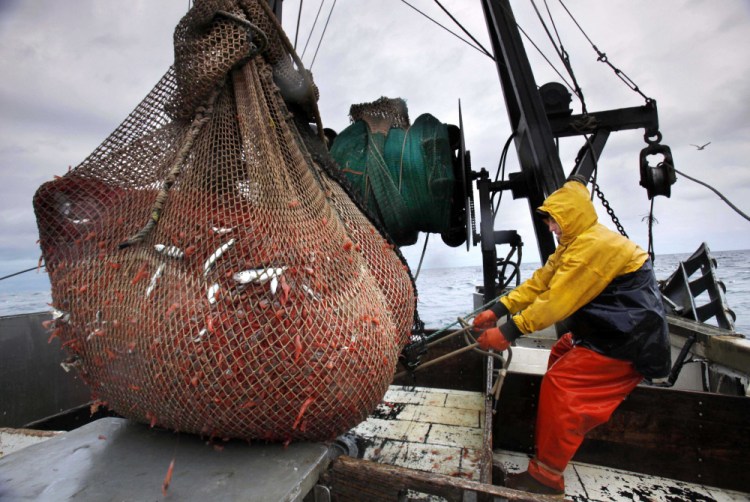New England’s commercial shrimp fishery will remain shut down because of concerns about the health of the crustacean’s population amid warming ocean temperatures.
The cold-water shrimp were once a winter delicacy in Maine and beyond, but the fishery has been shut down since 2013. A board of the regulatory Atlantic States Marine Fisheries Commission voted on Friday to keep the fishery shuttered for at least three more years.
The shrimp prefer cold water and their population health is imperiled by the warming of the ocean off New England. The Gulf of Maine, in particular, is warming faster than most of the world’s oceans.
Scientists have also said recently that warming waters led to increased predation from a species of squid that feeds on shrimp.
The board last voted to extend the existing moratorium on commercial fishing of the shrimp in 2018. The board could have decided to reopen the fishing industry on Friday, but chose not to in the face of discouraging news from scientists.
The decision followed a report earlier this month from a technical committee that said it made sense to keep the fishery closed because of the “poor condition of the resource, the extremely low likelihood of being able to fish sustainably, and the value of maximizing spawning potential to rebuild the stock if environmental conditions improve.”
Recent surveys of the shrimp show far less of them than historical averages, and there have been seven consecutive years of low abundance, said Maggie Hunter, a scientist with the Maine Department of Marine Resources. Warming waters remain a problem, Hunter said.
“Temperature data continues to show unfavorable conditions for northern shrimp,” Hunter said. “The status of the stock continues to be poor.”
The loss of the shrimp fishery has been an economic hardship for Maine fishermen, as it was previously a way for lobster fishermen and others to make money during the cold winter months. The domestic cold-water shrimping industry was based almost entirely in Maine, though some shrimp came to the docks in Massachusetts and New Hampshire.
Canadian fishermen harvest the same species, and they are sometimes still available to consumers in the U.S. They’re often called “northern shrimp” or “Maine shrimp” and are small, pink shrimp valued in the culinary world for their sweet meat. The shrimp are a small piece of the worldwide shrimp fishing and farming industry that produces the popular protein around the globe.
Maine fishermen harvested more than 10 million pounds of the shrimp per year as recently as 2011. The catch fell to less than 5 million pounds in 2012 and less than 600,000 pounds in 2013, after which the ban took effect.
The regulatory board also voted to explore the possibility of allowing personal use fishing for the shrimp.
Send questions/comments to the editors.


